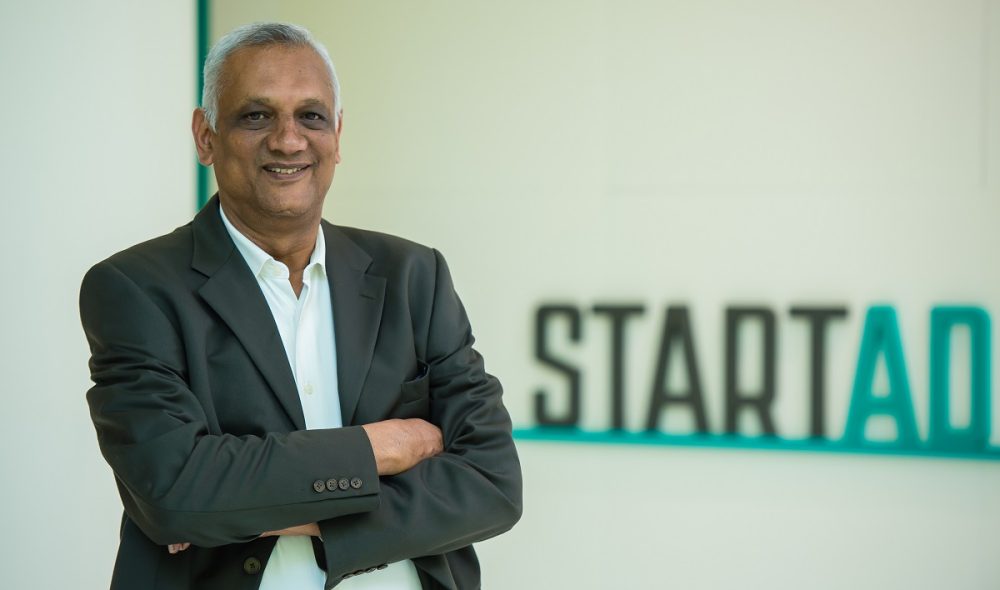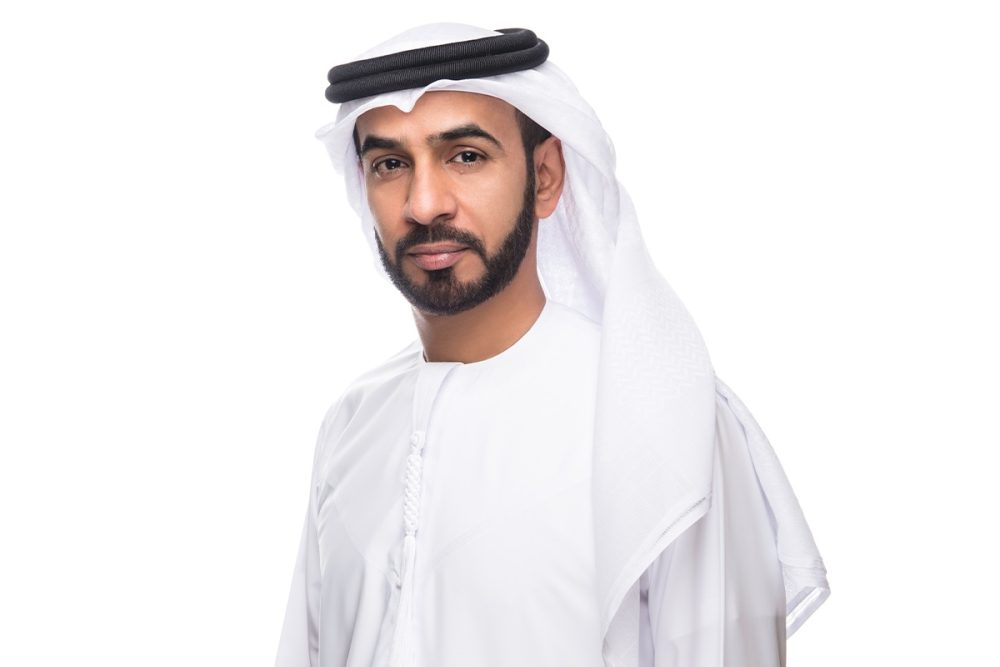The UAE Cabinet has adopted an unemployment insurance system, which aims to compensate insured workers with cash for a limited period in the event of unemployment, Sheikh Mohammed bin Rashid Al Maktoum revealed in a post on Twitter.
The initiative was initially revealed by the Vice President and Prime Minister of the UAE as part of a sweeping set of new regulations, policies, and executive decisions, following a UAE Cabinet meeting at the Qasr Al Watan Palace in Abu Dhabi.
“The unemployment insurance system aims to enhance the competitiveness of the labour market, provide a social umbrella for its workers, and establish a stable work environment for all,” Sheikh Mohammed bin Rashid said in a post on Twitter.
The cash amount for unemployed workers will be disbursed for a limited period until they find an alternative job.
Skip to the read how this ground-breaking move is set to benefit UAE workers and businesses from January 2023:
- The nation’s new unemployment insurance scheme will be applicable to all UAE citizens and residents
- 5 things you need to know about the UAE’s unemployment insurance scheme and how it works
- Here’s a breakdown of what experts have to say about the UAE’s new unemployment insurance scheme:
– Unemployment pay is a ‘huge step for employee rights’ and will reduce dependency on firms: experts
– The unemployment insurance scheme to boost MENA startups, protect ‘most vulnerable’ workers: Experts
– Safety net provided by UAE unemployment insurance scheme will prevent poverty and distress, experts say
– Further visa reform on the horizon after UAE ‘ups its game’ with the new unemployment insurance scheme: experts
The nation’s new unemployment insurance scheme will be applicable to all UAE citizens and residents

UAE’s Ministry of Human Resources and Emiratisation has stated that the nation’s new unemployment insurance scheme – which was initially announced by the Dubai Ruler Sheikh Mohammed bin Rashid Al Maktoum in a post on Twitter – will be applicable to all UAE citizens and residents.
The unemployment insurance programme will offer each UAE resident the option to pay a minimum of AED 40 and a maximum of AED 100 per year into an insurance scheme.
The programme will go into effect in January 2023, Dr Abdulrahman Abdulmannan Al Awar, the Minister of Human Resources and Emiratisation, said in a media briefing.
In the event that UAE workers lose their jobs, they will be eligible to receive 60 percent of their basic salary each month, or up to AED 20,000.
“The unemployment insurance system aims to enhance the competitiveness of the labour market, provide a social umbrella for its workers, and establish a stable work environment for all,” Sheikh Mohammed bin Rashid said in a post on Twitter.
The scheme aims to provide financial security and ensure the availability of income for the workers during their unemployment, until alternative job opportunities are made available.
Dr Al Awar said: “We have ensured that the scheme is flexible to allow the workers to agree on additional benefits with the insurance service provider, to reduce risks in the labour market for individuals, and increase flexibility for companies to deal with changes, thus, enhancing competitiveness and supporting stable living standards for families even during unemployment.”

He added that the insurance scheme will ensure a decent life for UAE workers, but will also help attract and retain top talent and skilled workers from around the world to the UAE’s public and private sectors.
The of Human Resources and Emiratisation will develop a mechanism to create and operate the scheme, its application and subscription fees, and any necessary requirements or procedures to ensure its success and governance.
The ministry will also monitor the work of insurance service providers to ensure the best results are achieved for both workers and companies.
The scheme’s unique guarantees, offered to all workers in the country, enhance the UAE business environment’s ability to attract and retain the best international talent and skilled workers by reducing business risks in a way that promotes the launch of projects and attracts talents who can contribute to building a competitive knowledge-based economy, Dr Al Awar concluded.
Here are 5 things you need to know about the UAE’s unemployment insurance scheme and how it works
- The unemployment insurance scheme will be applicable to both Emiratis and the UAE’s expat workers
- The new scheme aims to provide financial security in the event that UAE workers lose their job
- Each UAE resident will need to pay a minimum of AED 40 and a maximum of AED 100 per year for the insurance
- In return, if a UAE worker loses his/her job, the insurance will offer 60 percent their base salary, up to AED 20,000, for a period
- The programme will go into effect in January 2023, the Minister of Human Resources and Emiratisation said.
Here’s a breakdown of what experts have to say about the UAE’s new unemployment insurance scheme:
1. Unemployment pay is a ‘huge step for employee rights’ and will reduce dependency on firms: experts

The UAE’s new unemployment insurance scheme – which will come into effect in January 2023 – could be a game-changer for employee stability and will put the onus back on firms to ensure that they have what it takes to retain top talent, as it will take more than just wages to do so, experts told Arabian Business.
The UAE’s Ministry of Human Resources and Emiratisation has stated that the new unemployment pay programme – which was initially announced by the Dubai Ruler Sheikh Mohammed bin Rashid Al Maktoum in a post on Twitter – will be applicable to all UAE citizens and residents.
The unemployment insurance programme will offer each UAE resident the option to pay a minimum of AED 40 and a maximum of AED 100 per year into an insurance scheme,
In return, UAE workers who lose their jobs will be eligible to receive 60 percent of their basic salary, or up to AED 20,000, each month.
“This programme is another huge step for employment stability and employee rights in the UAE,” Marize Coetzer, a senior associate at global law firm Reed Smith, said.
“It complements the recent changes to the UAE Labour Law and the introduction of new visa categories, which encourages people to join the UAE workforce and to remain here after their employment ends.”

The scheme aims to provide financial security and ensure the availability of income for UAE workers in the event of unemployment, until alternative job opportunities are made available.
Coetzer explained: “A large portion of the UAE expatriate workforce still live from hand to mouth. This unemployment insurance will give employees comfort even if their employment is unexpectedly terminated.
“They would not have to immediately relocate and leave the country due to lack of income, or be forced to incur debt to survive.”
The unemployment benefits are also likely to give people breathing space to find a job.
Vijay Valecha, the chief investment officer at Century Financial, said: “This will prevent a person from taking up a job in distress and long term it will be good for companies also as they will be able to find the right person for the job.”
Apart from not needing to relocate immediately in the event of a job loss, the new law also empowers employees who are not happy in their current roles.
“Currently, employees need to have a job to move to if they are unhappy in their current role, whereas the new reforms reduce this dependency. This new policy should give employees more confidence, as well as security,” Scott Livermore, the ICAEW economic advisor, and chief economist and managing director at Oxford Economics Middle East said.
“The reforms highlight that factors beyond wages are important for attracting talent. During the recovery phase, this is likely to become more intense. This places the onus on businesses to be ‘good’ places to work in a broader sense.”

The unemployment pay initiative will also improve the competitiveness of the labour market, and encourage workers from around the region and the globe to look more closely at the UAE’s private sector, experts added.
Livermore said: “The new initiative will likely encourage expats to relocate to the UAE, and will also likely see public sector employees migrate to the private sector. This creates a more self-sufficient labour system and encourages greater confidence about developing a career in the UAE.”
This will also be beneficial for employers as it may serve as a way to attract employees to join, or incentivise employees to stay at, their company.
“There is already competition for talent as the economy recovers strongly from the Covid. If these reforms increase the attractiveness of the private sector in the UAE to both local and expat talent, then this could be positive for business and the economy as a whole.
“The new initiative will create a more stable economy, with a less transient labour pool, and will therefore help retain and develop knowledge in the economy, which should be positive for long run growth.” Livermore added.

From an economic perspective, unemployment schemes such as this are also likely to catalyse the UAE’s growth and help tackle future economic shocks, experts added.
Vijay Valecha said: “As the name indicates, unemployment insurance helps an unemployed person meet the family’s necessities, such as rent and food bills. However, these schemes are also beneficial for the economy.
“The economy indirectly benefits as it reduces the aggregate training costs in the system. This is because unemployment insurance enables a person to find jobs that are important in the economy.”
Studies in the US have found that individual consumption falls only one-third in the presence of an unemployment insurance program.
“It will help the local economy as money will keep flowing to businesses, landlords and other retailers in terms of economic uncertainty. So this scheme can enable UAE and individual families to tackle future economic shocks in a better way. Especially low-income families will be able to keep away from poverty,” Valecha concluded.
“Moreover, it restores the balance of power in the labour market. In the absence of any scheme, individuals are forced to deplete their assets to meet daily requirements, or some will be forced to send their immediate family members back home.”
2. The unemployment insurance scheme to boost MENA startups, protect ‘most vulnerable’ workers: Experts

UAE’s newly announced unemployment scheme will benefit the startup ecosystem by widening the country’s existing talent pool, stakeholders told Arabian Business.
Although many startup employees are still working remotely, blue-collars workers in the ecosystem will have “breathing room” to remain in the UAE while looking for another job, explained Sallyann Della Casa, founder of Gleac.com.
“Most tech startups in the region and globally are still operating on a remote work talent model. Our workforces are sitting everywhere and as such the Unemployment Initiative has little impact on our population. I am also not sure if this law by itself attracts that “remote ” startup workforce to the region or widens our white-collar pool of talent,” said Della Casa.
“I think the true net beneficiary of this law are the most vulnerable levels of the workforce from developing countries already here in more blue-collar roles within startups. Take for example the drivers of Deliveroo or Talabat. They would benefit immensely from this law. It will give them the breathing room to stay in the region to bridge to their next job. It’s a basic humanitarian move and a good for business,” she continued.

Blue-collar workers are not the only ones who will be incentivised to stay in the UAE because of the unemployment insurance programme as seasoned talent within the startup ecosystem will also be more comfortable staying in the country.
“Funding for MENA startups more than doubled on an annual basis in Q1 to about $864million according to a recent report, indicating a buoyant sector. These new businesses must have instant access to talent when opportunity strikes, which means there must be boots on the ground. And so far we have seen a raft of visa initiatives designed to attract people to the UAE in the first place to fill these spots,” said Ramesh Jagannathan is NYU Abu Dhabi Associate Dean of Engineering, and startAD managing director.
“However, another statistic worth noting is that 90 percent of startups fail within ten years. As any seasoned Silicon Valley entrepreneur will say, there is no reward without risk. And they will also note that there is no such thing as failures, only lessons learned.
“Unemployment pay will therefore help ensure that the UAE market is able to not just attract new talent, but also retain the seasoned individuals who have learned valuable lessons, skills, and localised expertise that are put to good use in their next venture. Their knowledge will be key to the next phase of the sector’s development,” continued Jagannathan.

The new unemployment insurance programme will go into effect January 2023 and is applicable to all UAE residents and citizens. It offers residents the option to pay a minimum of AED40 and a maximum of AED100 per year into an insurance scheme.
In the event that UAE workers lose their jobs, they will be eligible to receive 60 percent of their basic salary each month, or up to AED20,000.
3. Safety net provided by UAE unemployment insurance scheme will prevent poverty and distress, experts say

Expat and Emirati employees across the UAE’s public and private sectors will now have a safety net in the event of a job loss thanks to the new unemployment insurance scheme, which will in turn prevent poverty and distress in the nation, experts told Arabian Business.
The UAE’s Ministry of Human Resources and Emiratisation has stated that the new unemployment pay programme – which was initially announced by the Dubai Ruler Sheikh Mohammed bin Rashid Al Maktoum in a post on Twitter – will be applicable to all UAE citizens and residents.
The unemployment insurance programme will offer each UAE resident the option to pay a minimum of AED 40 and a maximum of AED 100 per year into an insurance scheme.
In return, UAE workers who lose their jobs will be eligible to receive 60 percent of their basic salary, or up to AED 20,000, each month.
The CEO of Policybazaar.ae, Neeraj Gupta, said: “The scheme is likely to help alleviate the distress caused by unemployment. It will provide assistance to unemployed individuals, which could prevent them from falling into poverty and vagrancy.

“The phase of job loss adversely affects the disposable income of the families. It further erodes their purchasing power, diminishes the morale of the employee, and reduces the economy’s output.”
Gupta added: “From 2023 onwards, this unemployment insurance (UI) will provide a safety net for everyone. Unemployment insurance will not only improve their well-being but, also help the economy. It will tide off financial exigencies while maintaining long-term financial stability.”
Unemployment scheme to help employees through a ‘difficult period’
Like other types of insurance, unemployment insurance will help reduce stress and provide crucial aid at a time when people need it the most, experts said.
The chairman of Watania, Dr Ali Saeed Bin Harmal Aldhaheri, said: “The unemployment insurance scheme will help people get through a difficult period by enabling them to pay bills and take sufficient time to make the right decisions about their future.”
The new and innovative scheme is also likely to attract more workers and talent to the country and will boost trust in the UAE workplace.
“This law would also constitute one of the major components of the social security programme in the UAE region,” Gupta said.

Unemployment scheme to benefit businesses and the economy
Additionally, the unemployment scheme will also benefit employers by promoting the smooth and efficient operation of the employment market for Emiratis and workers from overseas alike, making the country a more attractive place to work.
Dr Ali Saeed Aldhaheri said: “The move is part of a dynamic expansion of the insurance market in the UAE, in which the government and the private insurance sector are committed to introducing imaginative new concepts and products to meet the evolving needs of the market for insurance for individuals as well as businesses.”
Extensive insurance coverage across diverse areas of activity is expected to underpin successful economic growth and development.
“The Islamic insurance (Takaful) sector in particular is embarking on a fruitful period of diversification and scaling-up, including though restructuring that will enable the sector to offer innovative and competitive new solutions to a wider base of policyholders,” Dr Ali Saeed Aldhaheri added.
The unemployment insurance scheme is the latest in the UAE’s set of reforms, which further cements it position as a hub for business and talents, following a slew of updated regulations around the long-term Golden Visas and Green Residency visas.
The head of Investment for MENA Equity at Franklin Templeton, Salah Shamma, said: “These reforms should support long-term economic growth by attracting new entrants into the market seeking to set up businesses or find employment in the emirates, all while increasing the stickiness of the existing workforce and by extension, overall population growth.
“We expect improving labour force flexibility and mobility, low tax rates, and improving economic fundamentals to strengthen UAE’s position as an attractive destination to live, work and invest.”

The changes will also build on 2020’s proactive policy measures which paved the way for a tourism rebound catalysed by the successful hosting of Expo 2020.
Dubai’s hotel occupancy rates reaching the highest level in 15 years in March, while room rates hit a 6-year high. Similarly, flight movements in Dubai rebounded to 85 percent of the comparable week in 2019 by the end of the quarter, despite global macro headwinds and surging ticket costs on the back of rising oil prices.
“We expect a fresh pool of talent in sectors such as technology, commerce, and finance to emerge which should have longer lasting effects on the UAE economy,” Shamma concluded.
4. Further visa reform on the horizon after UAE ‘ups its game’ with the new unemployment insurance scheme: experts

UAE’s recently announced unemployment scheme is the latest in a series of “bold initiatives” which will see the country remain a strong competitor in the regional race for talent and investment, industry stake holders told Arabian Business.
The initiative will provide a “financial safety net”, encouraging workers to remain in the country while looking for their next role and thereby deepening the UAE’s talent pool.
Joanna Matthews-Taylor, the partner and head of employment at Baker McKenzie, said: “The UAE has further upped its game in the regional competition for talent and investment. The move will further enhance the UAE’s ability to attract talent by providing employees with a financial safety net should they lose their jobs and encourage expats to remain in country.”
“This will likely facilitate recruitment by providing employers with a greater pool of local talent to draw upon and reducing recruitment costs (more talent in the market will result in a reduced need to relocate new recruits and their families from overseas to the UAE),” she continued.
Going into effect on January 2023, the unemployment scheme could have implications on the UAE’s visa regime, which is sponsored by the resident’s employer, even as it complements the country’s latest initiatives towards enhancing its global business-friendly and investment ecosystem.
“It is reasonable to assume that some further reform of the current visa regime will be introduced to compliment the new unemployment insurance programme,” said Mathews-Taylor.
“At present, expatriate employees sponsored by their employers must leave the UAE or secure alternative sponsorship within 30 days of the cancellation of their residence visa. It will be interesting to see if an extension to the 30 day grace period will be introduced or perhaps an obligation for employers to continue to sponsor the visa during the period the employee is entitled to receive funds under the scheme.

“The announcement of the new scheme is the most recent development in a suite of measures designed to enhance the economy of the UAE. These measures include, for example, the introduction of new employment laws, the switch to a Saturday- Sunday weekend and of course the introduction of an annual 2 percent Emiratisation rate in respect of highly skilled jobs in the commercial sector. Emiratisation is a key pillar of the UAE’s economic agenda and we should expect further developments in this space,” she continued.
While unemployment benefits are typically provided to a country’s citizens, the UAE has extended that to all the country’s residents, including expats, a move that Omar Al-Ubaydli president of the Bahrain Economists Society, called “extremely bold.”
“This is an extremely bold policy, because unemployment insurance (usually in the form of unemployment benefits) is typically only offered to the citizens of a country, or to a strictly controlled subset of expatriate workers.
In contrast, the UAE has one of the most open labour markets in the world, and so providing this sort of scheme to a potentially unbounded labour pool is likely without precedent. Given this, the policy will need to be monitored and adapted as data on its impacts materialises. There are two notably points to keep in mind,” he said.

“First, for the policy to be effective in a sustainable manner, there needs to be a strong link between policymakers and the research community, especially those working in labour economics. This is because analysing the complex and novel data that will be generated requires deep research experience in the fields of economics and applied statistics. It is critical that researchers be afforded access to the data, and to the policymakers themselves so that they can share ideas and have their queries answered. This will ensure the long-term effectiveness of the policy.
“Second, this is the latest in a line of bold policy initiatives undertaken by the UAE government, and reflects a commitment to flexibility and progressive thinking. The risks and potential rewards are both potentially large, which is why most politicians would not be willing to take such steps, but the UAE has consistently demonstrated a willingness to push the envelope in the domain of economic policy. This kind of forward thinking will surely serve it will as it confronts the challenges of the next 20 years,” explained Al-Ubaydli.








